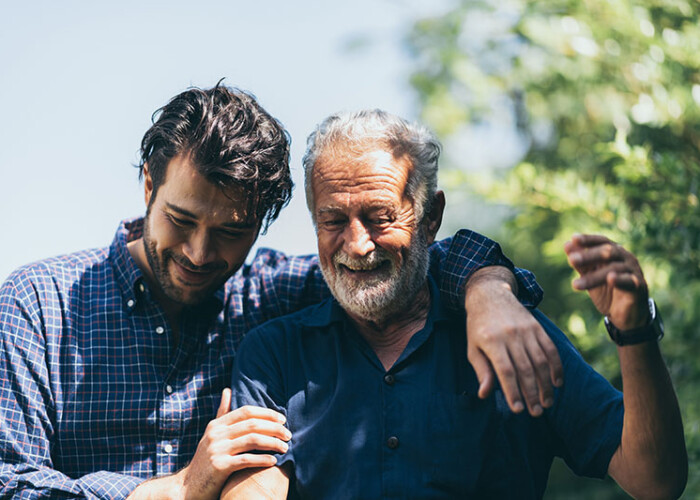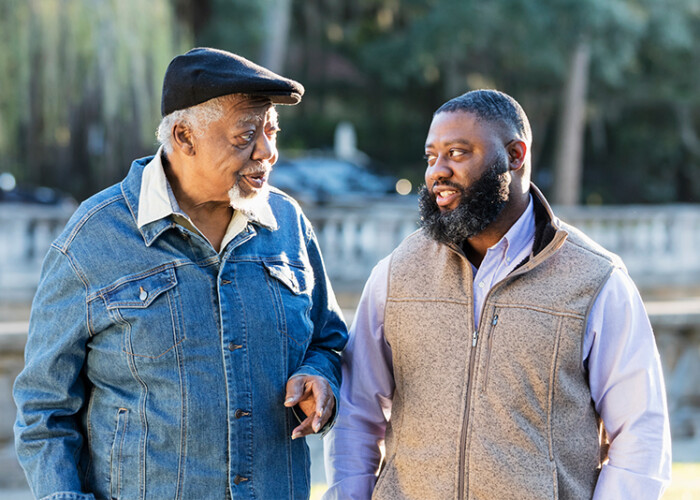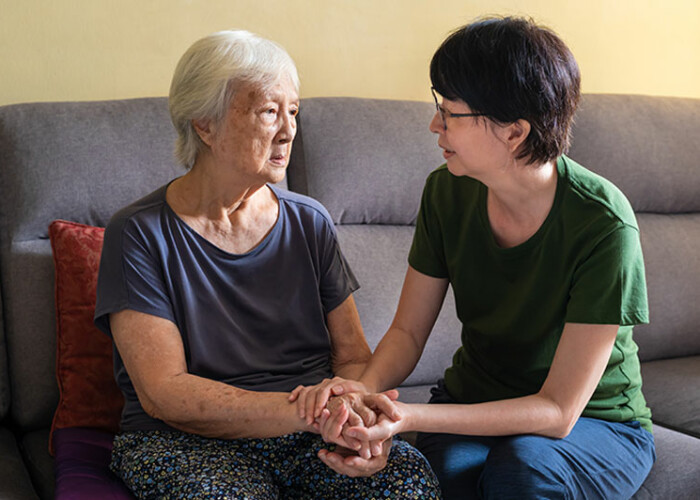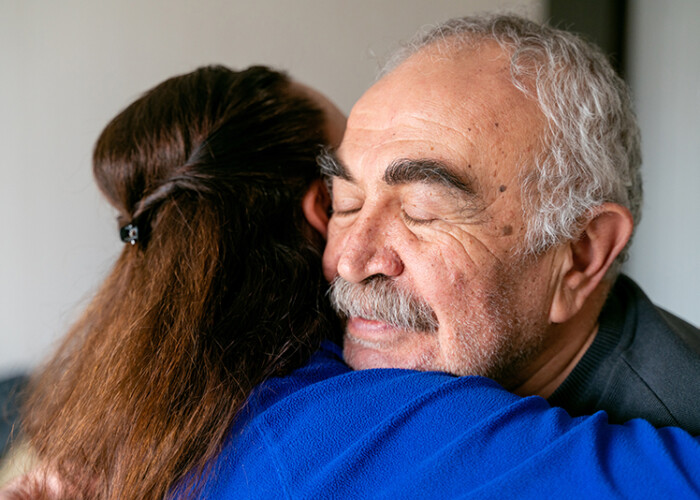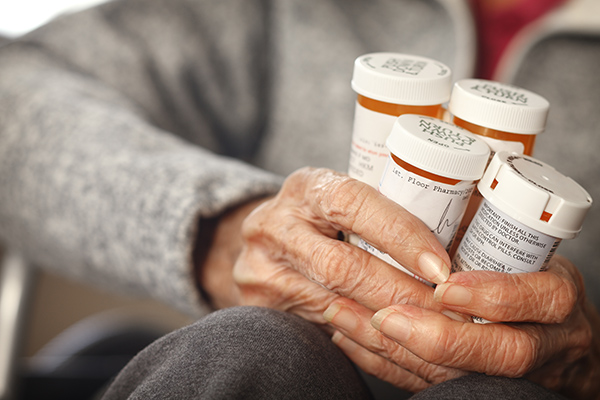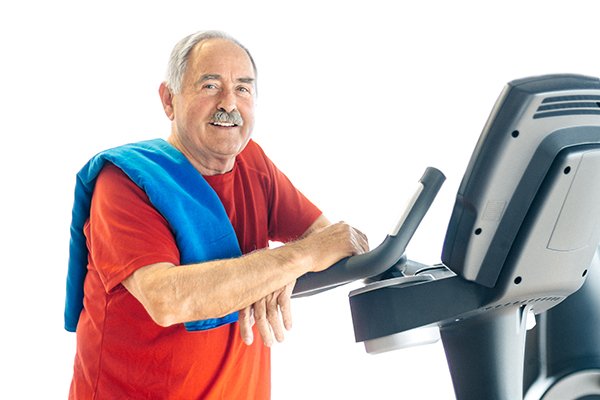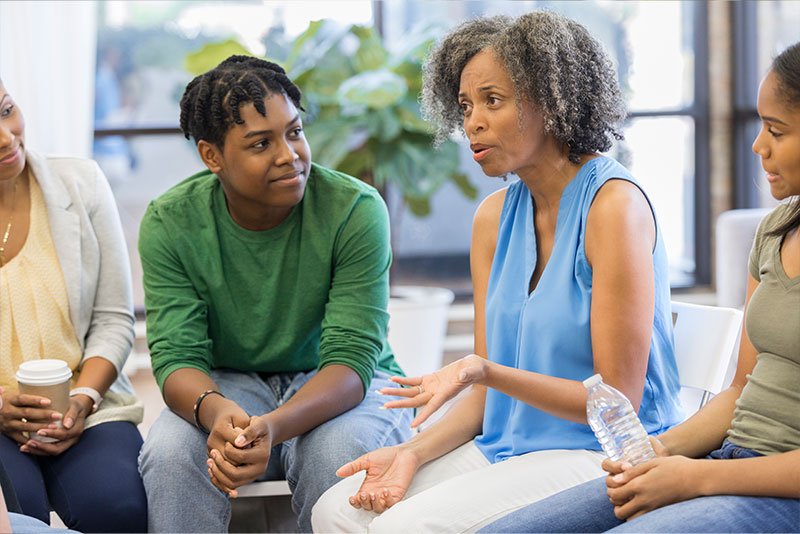Parkinson’s
Life Lessons Learned by Having a Parent With Parkinson’s
Having a parent with Parkinson’s means learning to adapt and grow in ways you may have never expected.
Having a parent with Parkinson’s disease changes life in ways you never quite expect. The diagnosis changes routines, relationships, and even the way you think about time. At first, it may feel overwhelming. There are so many questions and fears about what the future will look like. Yet, alongside those challenges come unexpected lessons. People who have been there often find themselves developing greater strength, resilience, and compassion than they ever thought possible.
Parkinson’s Communication Tips to Help You Stay Connected
Try these Parkinson’s communication tips to enhance your ability to connect with someone you love.
Imagine trying to share your thoughts, feelings, or even a simple idea with someone you love, only to feel as though your words are getting lost. Now, consider how isolating it must be if this were an everyday struggle. For someone living with Parkinson’s disease, this is often the reality. Communication becomes increasingly difficult as the disease progresses, creating frustration and emotional strain for both the person with Parkinson’s and their loved ones, making it crucial to know effective Parkinson’s communication tips. It begins with understanding how communication can be affected by the disease.
Could Alzheimer’s Disease Be an Autoimmune Condition?
Could Alzheimer’s disease be an autoimmune condition? Find out here!
Finding a cure for Alzheimer’s has become as tangled as the tau threads long thought to be the root cause of the disease. But now, research workers may be drawing one step closer to unraveling the puzzle of Alzheimer’s, by using a different train of thought. New studies are leaning towards the potential of an inflammatory response in the brain, which poses the question: could Alzheimer’s disease be an autoimmune condition?
What Is Parkinson’s Wellness Recovery and Is It Right for Someone I Love?
Learn about Parkinson’s Wellness Recovery to see if it might be helpful for someone you love.
For individuals living with Parkinson’s disease, the challenges of managing balance, mobility, and overall movement can be profound. As the disease progresses, these difficulties may increase, leading many to assume that less physical activity might be beneficial. However, this assumption is counter to what medical experts and extensive research suggest. In fact, increasing physical activity is strongly encouraged because of its numerous documented benefits in managing Parkinson’s symptoms. In fact, it’s believed to be on par with the adherence to prescribed medications for its role in effective disease management.
Why Alzheimer’s Caregivers Say They Need to Go It Alone – And Why It’s a Bad Idea
“You can make it, but it’s easier if you don’t have to do it alone.” – Betty Ford
Alzheimer’s caregivers may feel as though they are the only ones who can provide the best care for an older loved one, but finding a care partner is vitally important.
As a family member caring for a loved one with dementia, you know firsthand how challenging it can be. It’s definitely never a role that Alzheimer’s caregivers should try to fill on their own. Yet, many caregivers struggle with seeking the support they need, intensifying stress and leaving minimal room for self-care, a vital aspect for those in caregiving roles.
See if you can relate to these top reasons given by family caregivers for attempting to provide care solo, and why they need to be reconsidered:
Dad would not want another … Read More »
How to Help Someone with Parkinson’s from a Distance
If you’re wondering how to help someone with Parkinson’s disease when you live out of the area, we have four suggestions for you.
The days when extended families lived together on neighboring plots of land are, unfortunately, a thing of the past in many cases. With loved ones spread apart, it’s not always possible to provide the caring, hands-on care and support that older family members often need, especially when a chronic health condition – like Parkinson’s disease – creates additional concerns.
Yet even from a distance, there are still plenty of ways to assist. The Michael J. Fox Foundation offers these tips on how to help someone with Parkinson’s from afar:
Get organized. Take and keep detailed notes about medications being taken, treatments, emergency contacts, and other aspects of the person’s care needs. A digital version of this … Read More »
Dealing with Dementia: The Two Top Treatment Options
When dealing with dementia, one of these two treatment options may be recommended.
The most recent Alzheimer’s statistics are worrying. The condition has become the 6th leading cause of death, overtaking both breast cancer and prostate cancer combined. And though deaths from several chronic conditions, including cardiovascular disease, are declining, those from Alzheimer’s have escalated more than 100%. The toll the condition takes on family caregivers with a loved one who is dealing with dementia is similarly shocking, with well over 16 million Americans supplying over 18 billion hours of caregiving for a loved one with Alzheimer’s.
Although we have yet to realize a cure for Alzheimer’s disease, there are two distinct forms of treatment options that can help alleviate some of the more prevalent symptoms. If your parent is diagnosed with Alzheimer’s, the following are two options … Read More »
Learn to Recognize the Initial Symptoms of Parkinson’s
Hired Hands Homecare’s Napa senior living experts share information on the initial symptoms of Parkinson’s.
Parkinson’s disease affects one out of 100 people above the age of 60, plus the U.S. sees around 60,000 new cases every year, reports the Michael J. Fox Foundation. Because April is Parkinson’s Awareness Month, the home care experts at Hired Hands Homecare want to help raise understanding of the initial symptoms of Parkinson’s, as finding help early is crucial.
A proper diagnosis for Parkinson’s disease requires a battery of tests to rule out other conditions that often mimic Parkinson’s symptoms. However, early diagnosis and treatment might help patients boost their overall condition and experience a greater total wellbeing over time.
Here are warning signs and initial symptoms of Parkinson’s disease:
Moderate tremors – usually the symptom causing visitors to seek medical assistance.
Difficulty getting out of a … Read More »
Providing Elderly Care in Napa | Caring for a Parent With Parkinson’s
Learn tips on caring for a parent with Parkinson’s disease.
A large number of older adults with Parkinson’s disease receive the largest part of their care at home from loved ones, specifically during the earlier levels of the disease. As the leader in elderly care in Napa and the surrounding area, we at Hired Hands Homecare are aware of the unique concerns experienced by family members who are care providers for a parent with Parkinson’s, and want you to know you’re not alone! We are always available to offer recommendations and to partner with you in making sure your loved one is receiving the highest quality care at all times.
To begin with, it’s very helpful to keep these Parkinson’s-specific tips in mind:
Nutrition: A healthy diet helps lessen cell loss in an individual with Parkinson’s. Getting plenty of antioxidants, like … Read More »
At Home Caregivers in Santa Rosa | The Link Between Exercise and Parkinson’s Disease
Learn the important link between exercise and Parkinson’s disease symptom progression.
The particular results of exercising throughout aging are fantastic; however, for people who have Parkinson’s disease, it could truly be a game-changer in the progression associated with the disease. Several studies are revealing direct links between exercise and Parkinson’s disease, including the largest clinical study up to now, in which patients who exercised at least 2½ hours each week gained a higher total wellbeing compared to those who refrained from physical activity. And that’s only the start.
The onset of Parkinson’s symptoms develops following a loss in the brain cells that make dopamine. Experts think that exercise makes it possible for the brain to revive lost connections, form new ones, and keep maintaining those that continue to be in place. Additional studies show:
Gains were realized in stride length, gait … Read More »


